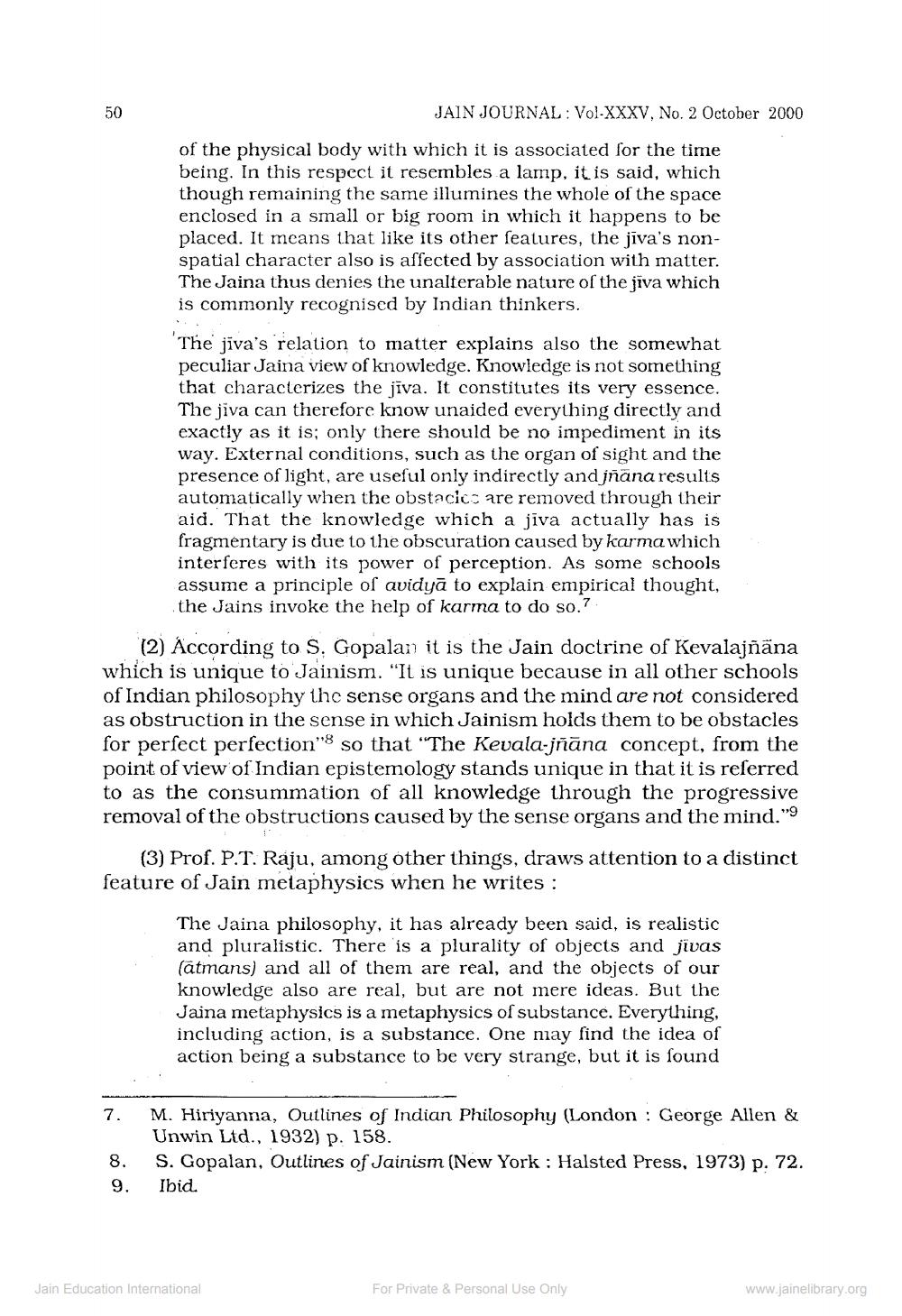Book Title: Jain Journal 2000 10 Author(s): Jain Bhawan Publication Publisher: Jain Bhawan Publication View full book textPage 7
________________ 50 7. (2) According to S. Gopalan it is the Jain doctrine of Kevalajñāna which is unique to Jainism. "It is unique because in all other schools of Indian philosophy the sense organs and the mind are not considered as obstruction in the sense in which Jainism holds them to be obstacles for perfect perfection" so that "The Kevala-jñāna concept, from the point of view of Indian epistemology stands unique in that it is referred to as the consummation of all knowledge through the progressive removal of the obstructions caused by the sense organs and the mind."9 8. JAIN JOURNAL: Vol-XXXV, No. 2 October 2000 of the physical body with which it is associated for the time being. In this respect it resembles a lamp, it is said, which though remaining the same illumines the whole of the space enclosed in a small or big room in which it happens to be placed. It means that like its other features, the jiva's nonspatial character also is affected by association with matter. The Jaina thus denies the unalterable nature of the jiva which is commonly recognised by Indian thinkers. (3) Prof. P.T. Raju, among other things, draws attention to a distinct feature of Jain metaphysics when he writes: 9. The jiva's relation to matter explains also the somewhat peculiar Jaina view of knowledge. Knowledge is not something that characterizes the jiva. It constitutes its very essence. The jiva can therefore know unaided everything directly and exactly as it is; only there should be no impediment in its way. External conditions, such as the organ of sight and the presence of light, are useful only indirectly and jñāna results automatically when the obstacics are removed through their aid. That the knowledge which a jiva actually has is fragmentary is due to the obscuration caused by karma which interferes with its power of perception. As some schools assume a principle of avidyā to explain empirical thought, the Jains invoke the help of karma to do so.7 The Jaina philosophy, it has already been said, is realistic and pluralistic. There is a plurality of objects and jivas (atmans) and all of them are real, and the objects of our knowledge also are real, but are not mere ideas. But the Jaina metaphysics is a metaphysics of substance. Everything, including action, is a substance. One may find the idea of action being a substance to be very strange, but it is found M. Hiriyanna, Outlines of Indian Philosophy (London: George Allen & Unwin Ltd., 1932) p. 158. S. Gopalan, Outlines of Jainism (New York: Halsted Press, 1973) p. 72. Ibid. Jain Education International For Private & Personal Use Only www.jainelibrary.orgPage Navigation
1 ... 5 6 7 8 9 10 11 12 13 14 15 16 17 18 19 20 21 22 23 24 25 26 27 28 29 30 31 32 33 34 35 36 37 38 39 40 41 42 43 44 45 46 47 48 49 50 51 52 53 54 55 56 57 58 59 60 61 62 63 64 65 66 67 68 69 70
